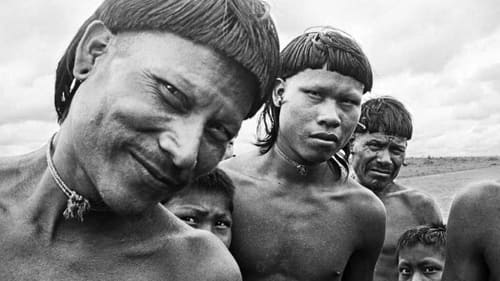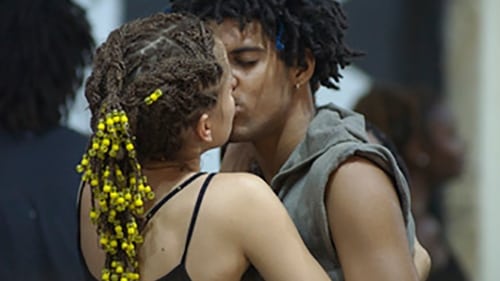Lúcio Kodato
출생 : 1947-03-29, São Paulo, São Paulo, Brazil

Cinematography

Director of Photography
The “Cinema Mudo” project is the realization of a short film and at the same time helping and integrating residents of a community living in a high-risk area. All children (actors and actresses) who work in the movie are residents in the community Vila Torres, an at-risk area in Curitiba. They were chosen after a theater classes for children held in that community as part as the film project. Most of the residents of this community live from the collection and recycling of garbage in the city of Curitiba. The story shows three children (two boys and a girl), in the mid-thirties, setting up a movie frame projection room. They build a projector with an empty shoe box with two holes with the size of a film frame. Inside the box they put a burnt-out bulb without its filament and filled with water. This bulb is used as a lens. Children had to wait until the bulb burned out. Those electrical bulbs were rare in those days.

Director of Photography
The documentary records the 2nd Na Dança festival, makes great interviews with its participants and composes an interesting portrait of the city of São Paulo and its immigrants.

Camera Operator
A film about remarkable moments in the History of Brazilian Photography, built through the eyes of Lauro Escorel. It also reflects on the impact of digital photography on contemporary society.

Camera Operator

Director of Photography
By approaching the financial system and its contradictions, the film raises questions about one of the main discourses of the financial authorities: that we can not spend more than we collect. Through several interviews, it gives an overview of how capital can influence politics and governments.

Director of Photography

Director of Photography
Free adaptation of Romeo and Juliet translated to the harsh life in Favela da Maré, one of largest and most violent slums in Rio de Janeiro. Living in a slum divided between two rival gangs of drug traffickers, Analídia is the daughter of one of the gangs' leaders and Jonathan is a childhood friend of the other gang leader. Both study in a dance group situated exactly in the middle of the two territories, looking for solace in art.

Director of Photography

Additional Photography
ABC of a Strike captures the 1979 metal workers strikes outside of São Paulo. The footage sat untouched until after the death of highly-regarded director Leon Hirszman in 1987, by which time the material had a new relevance. The gripping film captures the negotiations between the labor unions and the factory bosses and shows the birth of the region’s Worker’s Party, as well as the emergence of its charismatic leader, Luiz Inácio Lula da Silva. Rising from extreme poverty, Lula gained national prominence as a union activist during the late 70s and early 80s. After being jailed during his time as a union leader, he eventually becomes Brazil’s president from 2003 to 2010.

Camera Operator
The story of João "Jango" Goulart, the Brazilian left-wing president deposed by the military.

Director of Photography
Directed by the photographer Maureen Bisilliat, the documentary portraits the everyday life in the indigenous village of Mehinaku, in Alto Xingu, showing the planting and harvest of cassava, the fishing, the preparation of the annatto ink, the modeling of the domestic ceramics, the division of tasks between men and women, the work at the collective land, the relationship between parents and children, the marriage ceremony, the exchange with other villages and the great celebration of the Yamuricumã party.

Camera Operator

Director of Photography
The history of Partido-Alto, a musical subgenre derived from Samba, with roots in the batucada of Bahia.

Executive Producer
Drama teacher and writer of soap operas keeps his frustrating marriage because he doesn't have the existencial courage to get divorced. But he meets a temperamental and rich student, with whom he engages in a neurotic relationship.

Director of Photography
Drama teacher and writer of soap operas keeps his frustrating marriage because he doesn't have the existencial courage to get divorced. But he meets a temperamental and rich student, with whom he engages in a neurotic relationship.

Cinematography
Documentary about popular art manifestations in Northeast Brazil: the "cordel" literature (popular literature, small stories sold in markets); "repente", kind of musical challenge between two singers, who have to improvise the verses, in strict rhyme; and the interaction between these and local popular song.











